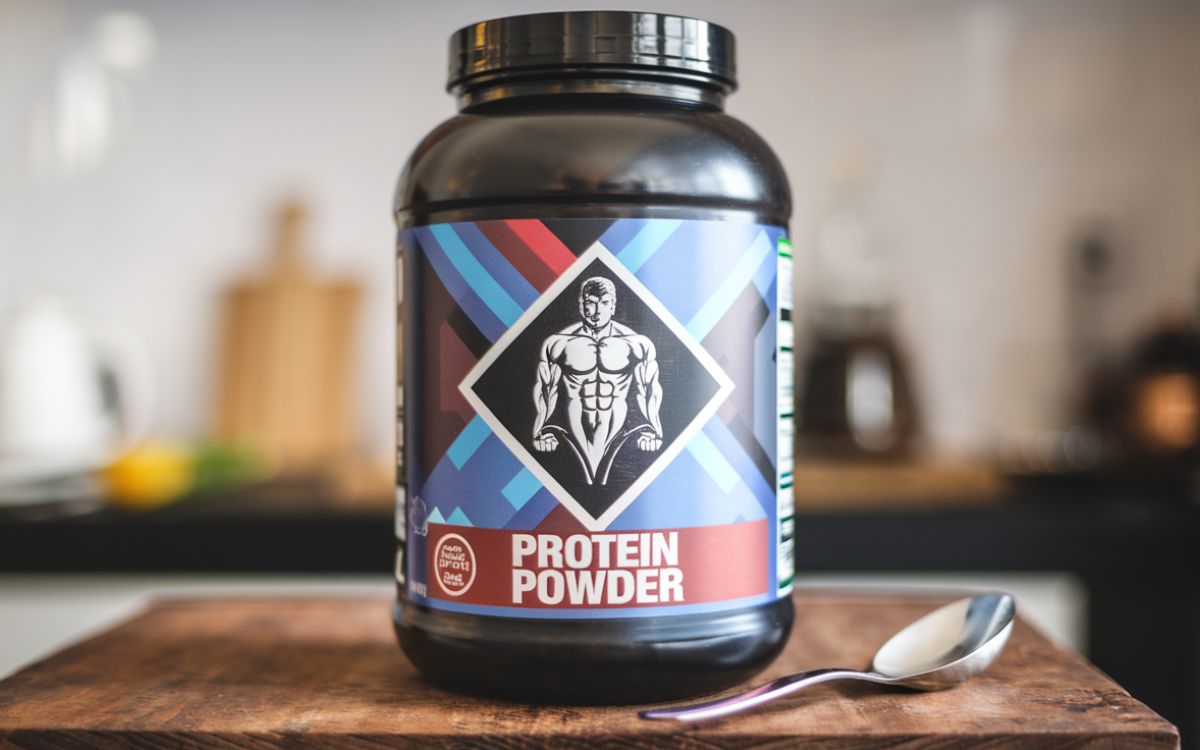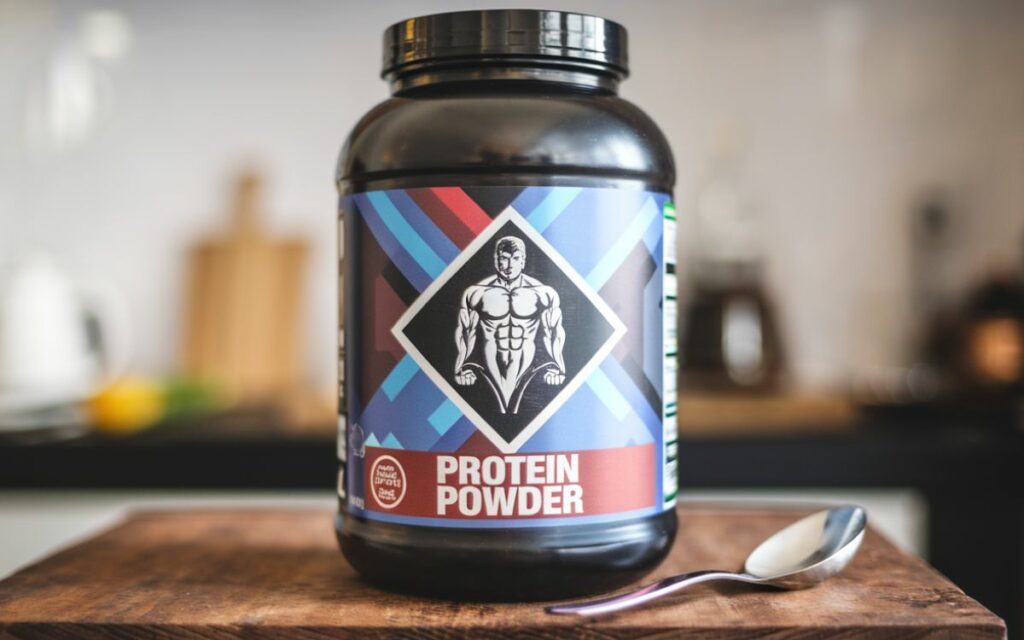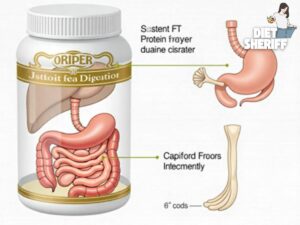Are you considering adding protein powder to your diet, but feeling a bit intimidated by the idea of having to hit the gym every day? Well, you’re in luck!
This guide will delve into the world of protein powder, exploring its potential benefits and drawbacks, whether you’re a gym enthusiast or a couch potato. We’ll address the burning question: Can you take protein powder without working out. So, Let’s dive in and find out!

What’s the Deal with Protein Powder? Understanding The Basics
Protein powder is essentially concentrated protein derived from various sources like whey, casein, soy, pea, and rice. It’s a convenient way to increase your protein intake, especially if you struggle to get enough from your diet alone.
But before we jump into the benefits, let’s address the elephant in the room: Is protein powder just a fad or a legitimate supplement?
The answer lies in understanding the role of protein in our bodies. Protein is essential for building and repairing tissues, producing enzymes and hormones, and supporting a healthy immune system.
Related Article: Are Protein Drinks Good for Weight Loss?
https://gigasecurehome.com/wyze-camera-only-taking-pictures
Why Might Someone Consume Protein Powder Without Engaging in Exercise?
There are several reasons why an individual might choose to take protein powder without engaging in regular exercise. Let’s explore a few of the most common scenarios:
1. Maintaining Muscle Mass
Even if you’re not actively working out, protein powder can help preserve and maintain your existing muscle mass. This can be especially beneficial for older adults or those who are physically inactive due to illness, injury, or sedentary lifestyles.
2. Boosting Metabolism
Protein has a higher thermic effect than carbohydrates or fats, meaning your body burns more calories to digest and process protein. By incorporating protein powder into your diet, you may experience a slight increase in your metabolic rate, even without exercise.
Related Article: Hot Protein Drinks: A Sip of Nourishing Warmth
3. Supplementing Inadequate Protein Intake
Some people struggle to meet their daily protein requirements through diet alone. Protein powder can be a convenient way to ensure you’re getting enough of this essential macronutrient, regardless of your activity level.
4. Addressing Specific Dietary Needs
Individuals following a vegetarian or vegan diet, or those with certain medical conditions, may find protein powder helpful in meeting their unique nutritional needs without the need for intense physical activity.
https://gigasecurehome.com/how-to-change-the-power-source-on-the-ring-doorbell
Can You Take Protein Powder Without Working Out?
So, can you take protein powder without working out? The answer is yes, but it’s essential to approach it with caution and consider your individual health and fitness goals.
If you’re looking to maintain muscle mass, boost your metabolism, or address specific dietary needs, incorporating protein powder into your diet can be a viable option. However, it’s crucial to monitor your intake, and ensure you’re getting a balanced array of nutrients from other food sources.
On the other hand, if your primary goal is to build muscle, combining protein powder with a well-designed exercise program will yield the most significant results. The synergistic effects of protein supplementation and physical activity can amplify the benefits and help you reach your fitness objectives more effectively.
Ultimately, the decision to take protein powder without working out should be a personalized one, taking into account your individual circumstances, health status, and overall lifestyle. Consult with a healthcare professional to develop a plan that aligns with your specific needs and goals.
Related Article: How Can a Woman Lose Weight with Protein Powder?
https://gigasecurehome.com/why-blink-camera-not-sending-notifications
What is the Recommended Dosage and Timing for Consuming Protein Powder?
The recommended daily intake of protein can vary depending on your age, activity level, and other factors. As a general guideline, the Recommended Dietary Allowance (RDA) for protein is 0.8 grams per kilogram of body weight per day.
However, if you’re not working out regularly, you may not need as much protein as someone who is actively building muscle. It’s a good idea to start with a smaller serving size, such as 20-30 grams per day, and adjust the amount based on how your body responds.
As for timing, you don’t necessarily need to follow the traditional “post-workout” protocol when you’re not working out. You can simply incorporate the protein powder into your daily routine, such as by mixing it into a smoothie, adding it to your oatmeal, or using it as a milk or yogurt substitute.
Related Article: Do Protein Drinks Have Sugar?
What Are the Potential Benefits of Taking Protein Powder Without Working Out?
While the primary benefits of protein powder are often associated with exercise and muscle building, there are still potential advantages to consuming it without a rigorous workout routine. Let’s explore some of these benefits:
- Appetite Suppression: Protein has been shown to be more satiating than carbohydrates or fats, meaning it can help you feel fuller for longer. This can be beneficial for those trying to manage their weight or curb cravings, even without regular exercise.
- Improved Body Composition: Although muscle growth may be more limited without exercise, protein powder can still help support a healthy body composition by preserving lean muscle mass and potentially reducing fat mass, even in the absence of a workout regimen.
- Increased Energy Levels: Protein provides a steady source of energy, which can be beneficial for those who lead a sedentary lifestyle or struggle with fatigue. Incorporating protein powder into your diet may help you feel more energized throughout the day.
- Better Immune Function: Protein is essential for the proper functioning of the immune system. By ensuring you’re getting enough protein, even without exercise, you may experience improved immune health and a reduced risk of infection or illness.
- Improved Skin, Hair, and Nail Health: Protein is a critical building block for various tissues, including skin, hair, and nails. Consuming protein powder can help support the maintenance and repair of these important structures, regardless of your activity level.
What Are the Potential Drawbacks of Taking Protein Powder Without Working Out?
While there are some potential benefits to taking protein powder without working out, it’s essential to understand the possible drawbacks as well:
- Limited Muscle Growth: One of the primary benefits of protein powder is its ability to support muscle growth and development. Without the stimulus of regular exercise, the potential for muscle building may be significantly reduced or even negligible.
- Potential Weight Gain: Protein powder, like any calorie-containing food or supplement, can contribute to weight gain if consumed in excess without corresponding physical activity to burn those additional calories. This can lead to unwanted weight gain and fat accumulation.
- Potential Kidney Strain: Consuming high amounts of protein, especially without adequate hydration and exercise, can potentially put additional strain on the kidneys. This is particularly concerning for individuals with pre-existing kidney issues or those who are not physically active diet sheriff.
- Possible Nutritional Imbalances: Overreliance on protein powder without a balanced diet can lead to nutrient deficiencies, as protein supplements may not provide the full spectrum of vitamins, minerals, and other essential nutrients your body needs.
- Potential Gut Issues: Some individuals may experience gastrointestinal discomfort, such as bloating, gas, or diarrhea, when consuming protein powder without the accompanying physical activity to help digest and absorb the protein effectively.
To mitigate these potential drawbacks, it’s essential to approach protein powder consumption with moderation and awareness. Listen to your body, stay hydrated, and consider incorporating other healthy lifestyle habits to support your overall well-being.
So, can you take protein powder without working out? Absolutely! But it’s crucial to understand the benefits, potential side effects, and how to choose the right protein powder for your needs.
By following these guidelines, you can enjoy the advantages of protein powder, even if you’re not an avid gym-goer. So, go ahead and give it a try – your body will thank you!
Explore Also:
Creativehouseblog
Gigasecurehome
Mycleanseplan
Can You Take Protein Powder Without Working Out – FAQs
Will taking protein powder without exercising cause weight gain?
Protein powder alone will not cause weight gain. Weight gain occurs when you consume more calories than you burn. It’s important to monitor your overall calorie intake.
How much protein do I actually need if I’m not working out?
For generally healthy, non-active adults, most experts recommend consuming around 0.8-1.0 grams of protein per kilogram of body weight per day. For a 150 lb (68 kg) person, that’s about 54-68 grams of protein.
Is protein powder safe for people with kidney problems?
Excessive protein intake can strain your kidneys. If you have pre-existing kidney problems, it’s crucial to consult your doctor before taking protein powder.
Can I use protein powder as a meal replacement?
Protein powder can be used as a meal replacement in a pinch, but it’s not a long-term solution. It’s essential to ensure that your meal replacements provide a balanced range of nutrients, including carbohydrates, fats, vitamins, and minerals.
How should I choose the right protein powder if I’m not working out?
Choose a protein powder that aligns with your dietary needs and preferences. Look for minimal additives and artificial ingredients. Consider factors like digestibility and any dietary restrictions you may have.






